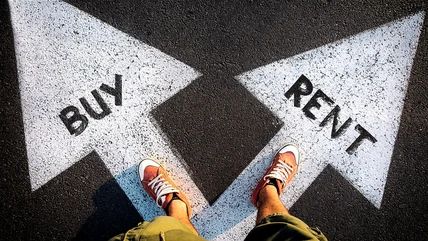
One of the most important financial decisions many people face is whether to rent or buy a home. Both options have their advantages and drawbacks, and the right choice depends on your lifestyle, financial situation, and long-term goals. If you’ve ever found yourself wondering, “Should I rent or should I buy?”—this guide is for you.
In this blog post, we’ll break down the key differences, explore the pros and cons of each, and help you determine which option might be better suited to your personal and financial circumstances.
What Does It Mean to Rent?
Renting means you pay a landlord a monthly fee to live in a property they own. You don’t build equity in the property, and you’re usually bound by a lease agreement for a specific term (commonly 6 or 12 months).
Pros of Renting:
- Flexibility: Renting offers greater mobility. If you’re not ready to settle down or plan to move within a few years, renting gives you the freedom to relocate easily.
- Lower Upfront Costs: You typically only need a security deposit and first month’s rent—no down payment required.
- Fewer Maintenance Responsibilities: Landlords are generally responsible for repairs, maintenance, and property taxes.
- Access to Amenities: Many rental properties offer shared amenities like pools, gyms, and security features.
Cons of Renting:
- No Equity Building: Your monthly payments don’t contribute to ownership; you’re helping your landlord build their equity.
- Rent Increases: Your rent can rise at the end of each lease term, depending on market conditions or landlord decisions.
- Limited Control: You can’t make major modifications or renovations without landlord approval, and rules may restrict pets, décor, or subletting.
- Less Stability: If the landlord decides to sell or not renew your lease, you may be forced to move unexpectedly.
What Does It Mean to Buy?
Buying a home means you own the property and are responsible for everything related to it—including the mortgage, taxes, insurance, and maintenance. Over time, as you pay down your mortgage, you build equity.
Pros of Buying:
- Equity and Investment: Monthly mortgage payments help you build equity, which can be a source of wealth over time.
- Fixed Payments: If you have a fixed-rate mortgage, your monthly payments remain predictable—unlike rent, which can fluctuate.
- Creative Control: You can renovate, redesign, and personalize your home without seeking approval.
- Stability: Homeownership often means long-term stability for you and your family, especially if you plan to live in one place for years.
Cons of Buying:
- High Upfront Costs: A down payment (usually 10–20% of the home price), closing costs, and property taxes can be significant.
- Ongoing Maintenance Costs: As a homeowner, you’re responsible for repairs and upkeep, which can add up over time.
- Reduced Flexibility: Selling a home can be a lengthy and expensive process. You can’t simply “break the lease” if your circumstances change.
- Market Risk: The value of your home may fluctuate with the real estate market. In a downturn, your property might be worth less than you owe.
Rent vs. Buy: A Quick Comparison
| Feature | Renting | Buying |
|---|---|---|
| Upfront Costs | Low (security deposit) | High (down payment, closing costs) |
| Monthly Payments | Rent | Mortgage + taxes + insurance |
| Equity Building | No | Yes |
| Flexibility | High | Low |
| Maintenance | Landlord responsibility | Homeowner responsibility |
| Long-Term Investment | No | Yes |
| Customization Freedom | Limited | Full |
| Stability | Moderate | High |
So, Which Is Better for You?
Here are a few personal scenarios that may help you decide:
Renting Might Be Better If:
- You plan to relocate within 2–3 years.
- You want minimal responsibilities for maintenance and repairs.
- You don’t yet have the savings for a down payment.
- You’re unsure of your long-term career or family plans.
Buying Might Be Better If:
- You plan to stay in the same area for 5+ years.
- You want to invest in a long-term asset.
- You’re financially stable with good credit and savings.
- You desire full control over your living space.
Final Thoughts
There’s no one-size-fits-all answer to the rent vs. buy question. What matters most is your lifestyle, financial goals, and personal priorities. Renting offers flexibility and lower upfront costs, while buying builds equity and long-term stability.
Before making a decision, take time to evaluate your current finances, career trajectory, family needs, and long-term goals. You may also want to consult a financial advisor or real estate professional to explore the best path for your unique situation.
Remember, whether you rent or buy, the most important thing is finding a place that feels like home.
